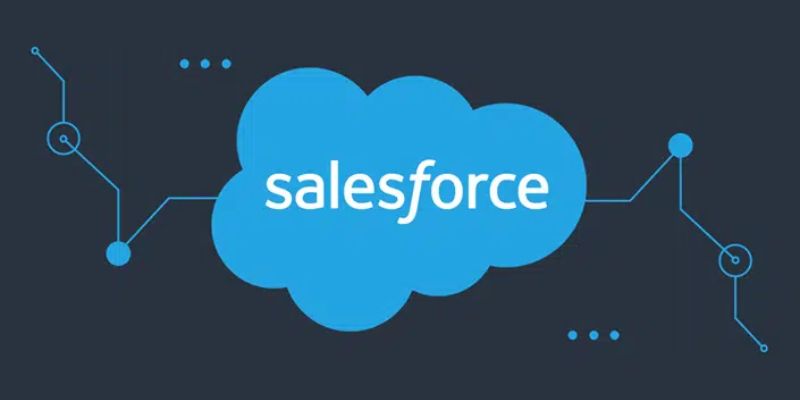
Sales and marketing alignment is crucial for business success. When these two departments work together seamlessly, companies can achieve higher revenue, better customer experiences, and improved efficiency. However, this alignment is often easier said than done, with communication gaps, data silos, and differing priorities getting in the way. Salesforce, a leading customer relationship management (CRM) platform, is pivotal in bridging these gaps, offering tools and features that enable sales and marketing teams to collaborate effectively. To fully leverage Salesforce’s capabilities, professionals can benefit from a Salesforce Training in Tirupur, which provides comprehensive training to master the platform and optimize team collaboration. This blog explores how Salesforce can unite these teams and drive business growth.
Centralized Customer Data
One of Salesforce’s biggest advantages is its ability to provide a centralized customer information database. Both sales and marketing teams can access the same up-to-date data, ensuring they work with consistent information. Marketing teams can better understand which leads are more likely to convert, while sales teams gain insights into customer behavior and preferences. This shared access eliminates silos and fosters a collaborative approach to customer engagement.
Improved Lead Management
Salesforce streamlines lead management by offering scoring, tracking, and nurturing tools. Marketing teams can use Salesforce to track the journey of leads from their first interaction to conversion, ensuring that high-quality leads are passed on to the sales team. On the other hand, sales representatives can view detailed lead histories, helping them tailor their approach to each prospect. This smooth handoff reduces friction and enhances the chances of closing deals, crucial for companies offering courses like a Digital Marketing Course in Madurai where understanding and nurturing leads is key to success.
Enhanced Campaign Tracking
With Salesforce, marketing teams can run targeted campaigns and measure their effectiveness in real time. The platform’s analytics and reporting tools allow marketers to track click-through rates, conversions, and ROI metrics. Marketers provide valuable context about lead engagement by sharing these insights with sales teams. Sales teams can then prioritize leads based on their interactions with marketing campaigns, ensuring a more focused and productive sales process.
Better Communication Through Collaboration Tools
Salesforce offers built-in collaboration tools, such as Chatter, which enable seamless communication between sales and marketing teams. Chatter allows team members to share updates, ask questions, and discuss strategies directly within the Salesforce platform. This real-time collaboration ensures everyone stays on the same page, reducing misunderstandings and improving teamwork. A Salesforce Training in Tirupur can provide the training needed to maximise collaboration tools’ use effectively.
Alignment on Goals and Metrics
Salesforce helps align sales and marketing teams by providing a unified platform for setting and tracking goals. Both departments can define shared objectives, such as increasing lead conversion rates or boosting revenue, and use Salesforce’s dashboards to monitor progress. Teams with a common understanding of success metrics can work together more effectively to achieve those goals.
Automation for Increased Efficiency
Automation is a key feature of Salesforce that benefits both sales and marketing teams. Marketing automation tools enable marketers to schedule email campaigns, segment audiences, and nurture leads without manual effort. Similarly, sales teams can use Salesforce to automate repetitive tasks, such as follow-up reminders or pipeline updates. This efficiency allows both teams to focus on strategic activities, ultimately improving productivity and results. A Salesforce Training in Pondicherry can help professionals understand how to set up and optimize these automated workflows.
Insights Through Advanced Analytics
Salesforce’s advanced analytics capabilities empower sales and marketing teams to make data-driven decisions. With tools like Einstein Analytics, teams can uncover trends, predict customer behavior, and identify areas for improvement. These insights help marketers refine their campaigns and sales teams optimize their outreach efforts, ensuring that both departments are aligned and working toward common objectives.
Personalized Customer Experiences
Personalization is essential for building strong customer relationships in today’s competitive market. Salesforce enables teams to create highly personalized customer experiences by integrating data from various touchpoints. Marketing teams can craft personalized campaigns based on customer preferences, while sales teams can tailor their pitches to individual needs. This alignment ensures a cohesive and engaging experience for the customer, fostering loyalty and satisfaction. For institutes offering a Digital Marketing Course in Pondicherry, personalized outreach can greatly enhance engagement and enrollment rates.
Scalability for Growing Businesses
As businesses grow, their sales and marketing needs evolve. Salesforce’s scalability makes it an ideal solution for companies looking to expand. The platform can adapt to accommodate larger teams, more complex processes, and increasing data volumes. This scalability ensures that sales and marketing alignment remains strong even as the organization grows, setting the stage for sustained success.
Salesforce is a powerful catalyst for aligning sales and marketing teams, driving collaboration, efficiency, and growth. By centralizing data, enhancing communication, and providing actionable insights, Salesforce eliminates the barriers that often hinder alignment. Through better lead management, personalized customer experiences, or shared goals, Salesforce helps businesses create a unified approach to achieving success. In an era where collaboration is key, investing in a Salesforce Training in Madurai can make all the difference.
